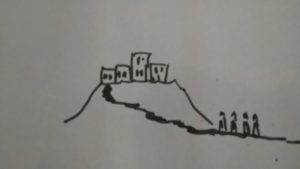Like the proverbial curate’s egg Twitter has good and not so good parts. I want to celebrate some of the good bits I’ve found personally
1: it connects me more readily with my best friend who lives in a different country and who I see maybe a couple of times a year. She tweets a lot, and was really responsible for getting me started in this. She connects me to her global concerns and also translates stuff for me to join in.
2: as a result I’m connected to more people. This was important at the time, a couple of years ago, when I felt much less connected particularly to the small part of the church to which I had belonged. The silence and isolation I received there was in stark contrast to the voices of those who I connected with on Twitter, many of whom were women working in different ministries and communities and concerns.
3: being more connected meant I heard about stuff I didn’t know about, projects I got involved in, some I still am. Some have reached their goals others are still struggling. Justice and peace are common themes. There is connection. We don’t give up
4: I also connected with other pray-ers and that helped me to feel reconnected to the true concerns of the church, even if I no longer attended and still got angry or cried a lot about what had happened.
5: it also helped me to connect with a world of other things. A boy at school tweets about Rhinos, others choose anti bullying, homelessness or community development. This way I can stay connected to their concerns even when we don’t meet.
6: I met other people through Twitter, some made cakes, were artists, writers, gardeners, foragers, mental health campaigners and much more. I was not alone or isolated
7: of course it didn’t always go well. A troll thought I should stick to the Church of England instead of getting involved in politics. This was when we were ringing for Aleppo. It was amusing because my forbears left the Church of England in 1662. Faith is not apolitical (even in the Church of England).
I know Twitter had an unkind side and that bothers me a lot but it also communicates kindness, concern and connection, and I really appreciate that.
In our life and our believing
The love of God
